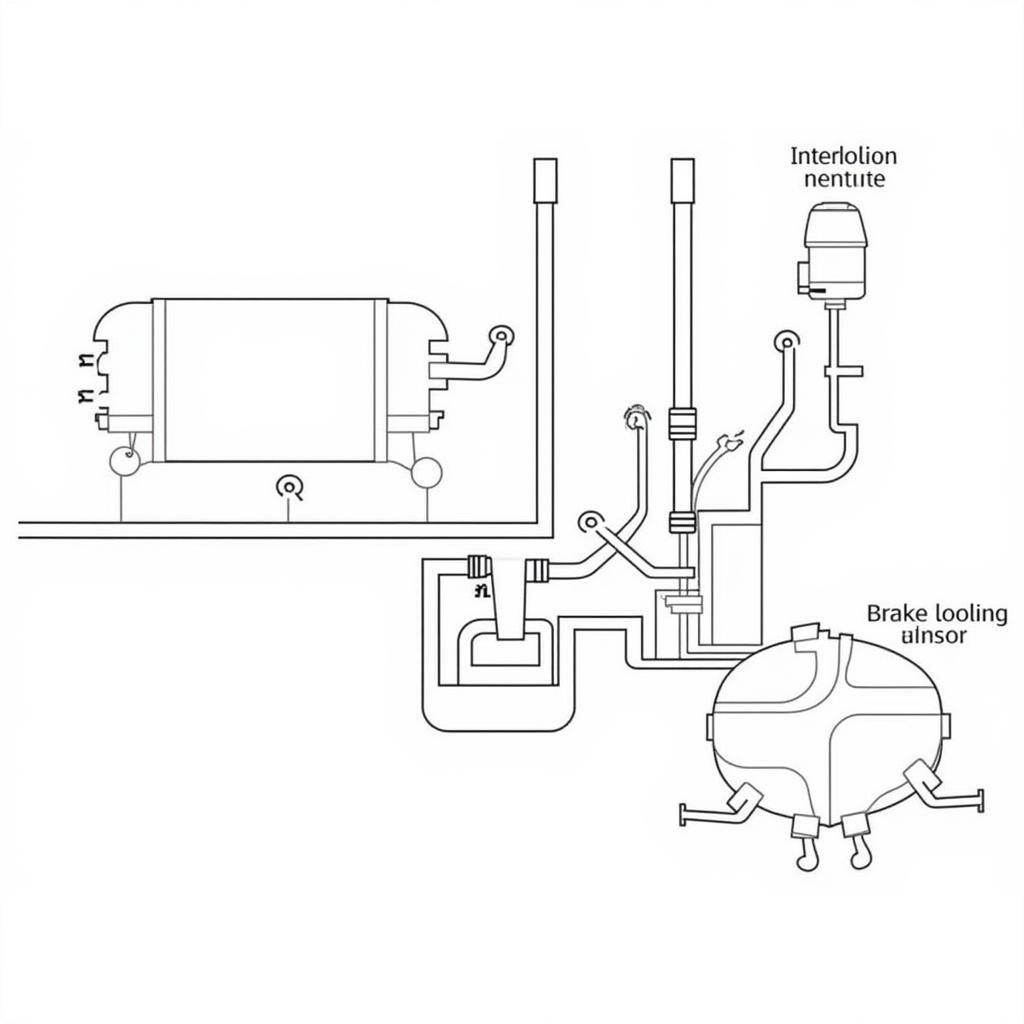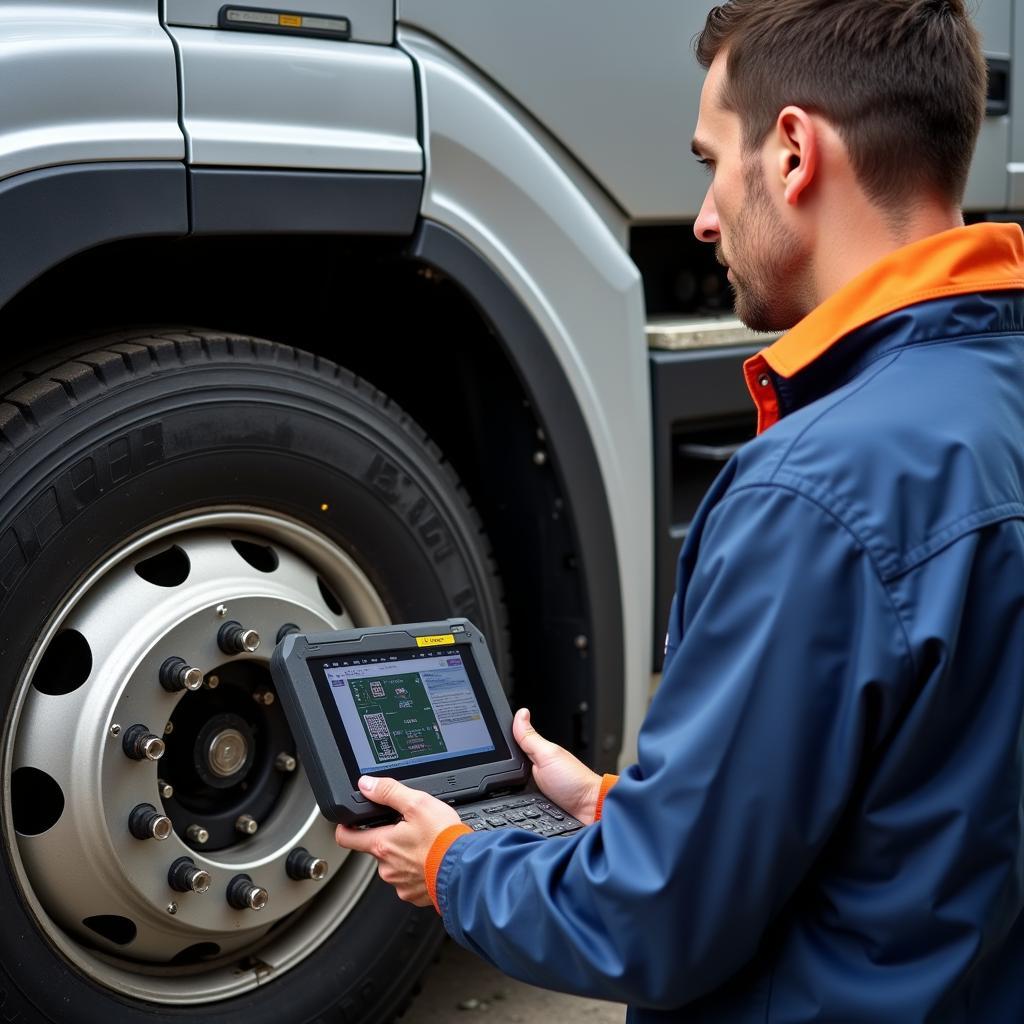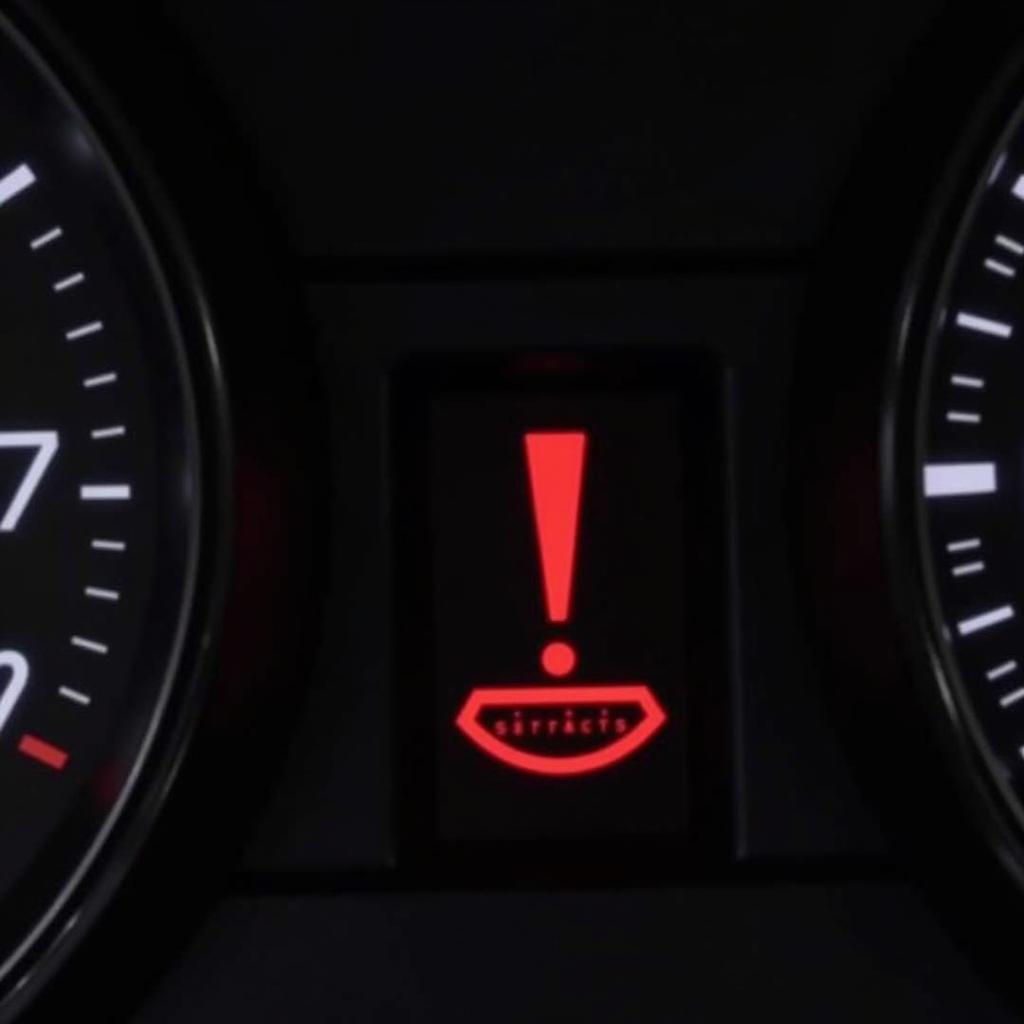Experiencing a “brake cooling oil pressure high” warning light on your Volvo articulated truck? This warning signals a potentially serious issue within your truck’s braking system that shouldn’t be ignored. Understanding the causes and knowing how to troubleshoot this problem can be the difference between a quick fix and costly downtime.
Understanding Your Truck’s Braking System
Before diving into the specifics of the “brake cooling oil pressure high” warning, it’s crucial to have a basic understanding of your Volvo articulated truck’s braking system. These heavy-duty vehicles often utilize a hydraulic braking system with an added component for cooling – the brake cooling system.
The hydraulic system uses brake fluid to transmit the force you apply to the brake pedal to the brake drums or discs, slowing down or stopping the vehicle. However, repeated and prolonged braking, especially when hauling heavy loads, generates significant heat. This is where the brake cooling system comes into play.
The brake cooling system helps to dissipate this heat, preventing brake fade and maintaining optimal braking performance. It typically consists of an oil cooler, oil lines, and an oil pressure sensor, all working in tandem to regulate brake temperature.
What Causes High Brake Cooling Oil Pressure?
A “brake cooling oil pressure high” warning indicates that the pressure within the brake cooling system has exceeded the manufacturer’s recommended limits. This can be caused by several factors, some mechanical, others electrical:
- Faulty Brake Cooling Oil Pressure Sensor: A malfunctioning pressure sensor may send incorrect readings to the truck’s ECU (Electronic Control Unit), triggering a false warning even if the actual oil pressure is within normal range.
- Blocked Oil Cooler: Over time, debris, dirt, and sludge can accumulate within the oil cooler, restricting oil flow and causing pressure to build up.
- Kinked or Obstructed Oil Lines: Similar to a blocked oil cooler, damaged or obstructed oil lines restrict oil flow, leading to a pressure increase.
- Incorrect Oil Viscosity: Using the wrong type or viscosity of brake cooling oil can affect flow rate and potentially lead to high pressure.
- Overfilled Brake Cooling Oil Reservoir: Exceeding the maximum oil level in the reservoir can contribute to high pressure within the system.
 Volvo Articulated Truck Brake Cooling System
Volvo Articulated Truck Brake Cooling System
Troubleshooting the “Brake Cooling Oil Pressure High” Warning
If the warning light illuminates on your dashboard, it’s crucial to investigate the issue promptly. Here’s a step-by-step guide:
- Check the Brake Cooling Oil Level: Safely park your truck on a level surface, engage the parking brake, and allow the engine to cool down. Locate the brake cooling oil reservoir (refer to your owner’s manual) and visually inspect the oil level. Ensure it falls within the minimum and maximum marks.
- Inspect the Brake Cooling Oil Pressure Sensor: Locate the pressure sensor (usually situated on the oil cooler or within the oil lines) and check for any visible damage, loose connections, or corrosion. If found, address these issues accordingly.
- Examine the Oil Cooler and Lines: Visually inspect the oil cooler and lines for any signs of damage, kinks, leaks, or obstructions. Replace any damaged components immediately.
- Verify Oil Viscosity and Condition: Consult your owner’s manual for the recommended brake cooling oil type and viscosity. If unsure, consult a qualified Volvo technician. If the oil appears dark, sludgy, or contaminated, a complete system flush and refill are recommended.
- Utilize Diagnostic Software: For a more comprehensive diagnosis, connect your truck to Volvo’s diagnostic software. This software allows you to monitor live data from the brake cooling system, including oil pressure readings, and identify potential sensor faults.
 Volvo Technician Diagnosing Brake Cooling System
Volvo Technician Diagnosing Brake Cooling System
“It’s not uncommon to see premature oil cooler failures due to lack of proper maintenance,” says Mark Anderson, Senior Volvo Truck Technician. “Regularly inspecting and cleaning the cooler, along with using high-quality brake cooling oil, can significantly extend its lifespan and prevent costly repairs down the road.”
When to Seek Professional Help
While some issues can be resolved through basic troubleshooting, more complex problems may require the expertise of a qualified Volvo technician. Contact your nearest Volvo dealership or authorized service center if:
- The warning light persists after following the troubleshooting steps.
- You’re uncomfortable performing the inspection or repairs yourself.
- You suspect a major component failure within the brake cooling system.
Preventing Future Issues
Preventing is always better than cure. Here are some proactive measures to keep your brake cooling system in optimal condition:
- Adhere to Scheduled Maintenance: Follow the recommended service intervals outlined in your owner’s manual for brake cooling system inspections, oil flushes, and component replacements.
- Use High-Quality Brake Cooling Oil: Always use the correct type and viscosity of brake cooling oil recommended by Volvo. High-quality oils offer better heat dissipation and lubrication, prolonging the lifespan of system components.
- Inspect Regularly: Make it a habit to visually inspect the oil cooler, lines, and reservoir for leaks, damage, or obstructions during routine maintenance checks.
- Address Warning Lights Promptly: Never ignore warning lights on your dashboard, especially those related to critical systems like the brakes.
Conclusion
A “brake cooling oil pressure high” warning on your Volvo articulated truck should never be taken lightly. Understanding the potential causes and knowing how to troubleshoot this issue can save you time, money, and potential headaches down the road. Remember, a well-maintained brake cooling system is crucial for optimal braking performance and overall safety. If you encounter this warning, take the necessary steps to address the problem promptly, and when in doubt, consult a qualified Volvo technician.

